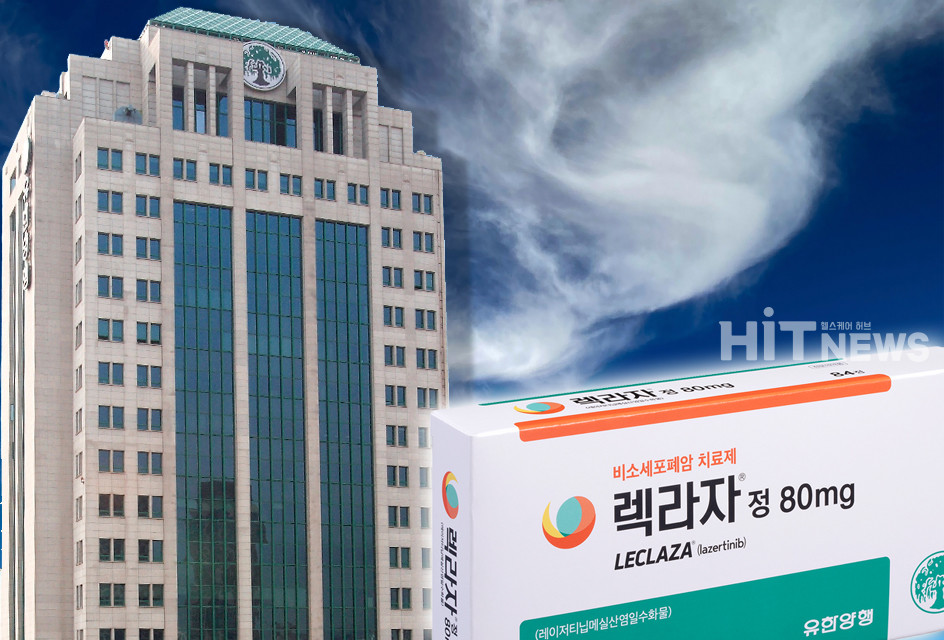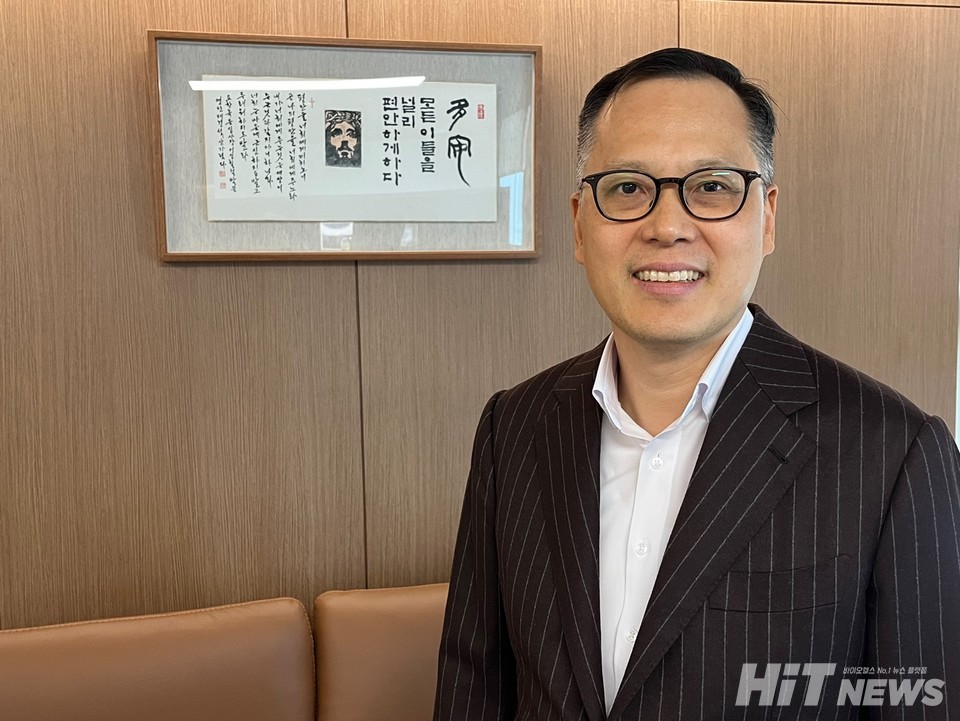Leclaza’s 9-Year Journey: From Lazertinib Acquisition in 2015 to FDA Success
2018: $1.25 billion Licensing Deal with Janssen
$80 Million Milestone Secured with Combination Therapy Approval

Yuhan Corporation's lung cancer treatment, Leclaza (active ingredient: Lazertinib, US name: Lazcluze), has achieved a pivotal milestone by gaining approval from the U.S. Food and Drug Administration (FDA) when used in combination with Rybrevant (Amivantamab). This marks the first instance of a Korean-developed anticancer drug receiving FDA approval.
On August 20th, Yuhan announced that Leclaza, in collaboration with Janssen’s Rybrevant, has been approved by the FDA as a first-line treatment for adult patients with locally advanced or metastatic non-small cell lung cancer (NSCLC) with confirmed EGFR exon 19 deletions or exon 21 L858R substitution mutations.
This FDA approval is a significant achievement for Yuhan Corporation, embodying the first concrete result of its R&D open innovation strategy. Yuhan's CEO, Wook-Je Cho, emphasized that “Leclaza’s FDA approval is a meaningful result of Yuhan’s R&D investments through open innovation.” Jennifer Taubert, Executive Vice President of Johnson & Johnson’s Innovative Medicine division, added, “With over 30 years of oncology innovation, we are uniquely positioned to develop leading therapies where survival rates have stagnated for years. The combination of Rybrevant and Lazclruza sets a new standard in first-line NSCLC treatment, offering patients a chemotherapy-free therapeutic option.”
Yuhan’s Choice, Janssen’s Achievement: A Scientist's Dream Realized in a 'Great and Global' New Drug

The story behind Leclaza and Rybrevant’s combination therapy transcends borders, showcasing a collaborative effort that began with the foundation of Leclaza itself. It illustrates how a compound developed by a scientist, who made notable advances in the South Korean diabetes treatment market before relocating to the United States, was further refined by leading pharmaceutical companies both domestically and internationally.
Jong-Seong Goh, former head of LG Chem’s New Drug Research Institute, was instrumental in developing LG Chem’s diabetes treatment, Zemiglo (gemigliptin). After moving to the United States, he founded Genosco and, over nearly a decade, collaborated with U.S.-based drug development experts to develop a lung cancer treatment with global potential. This led to the creation of Lazertinib, which garnered attention from the Korean pharmaceutical industry at the early 2015 JP Morgan Conference.
Jeong-Hee Lee, then president of Yuhan Corporation, learned about Lazertinib at the conference and immediately initiated discussions with Genosco to secure a contract, recognizing the compound's high commercial potential. South Korean institutions also played a crucial role, particularly the New Drug Development Support Center of the Daegu-Gyeongbuk Medical Innovation Foundation, which collaborated on research during critical stages of development.
In November 2018, Yuhan Corporation signed a licensing agreement with Janssen Biotech, Inc., valued at $1.25 billion, marking a significant milestone in Leclaza’s development journey. The drug received marketing approval from the Korean Ministry of Food and Drug Safety (MFDS) in January 2021 and later gained FDA approval as part of a combination therapy with Rybrevant, becoming the first Korean-developed anticancer drug to achieve such a feat.
Leclaza, which crossed the FDA threshold in partnership with Janssen’s Rybrevant, symbolizes the success of open innovation in Korean pharmaceutical advancements. Unlike previous technology exports from South Korea, Yuhan retained South Korean rights, creating an independent new drug while collaborating with Janssen to develop an optimal combination therapy. This partnership has added significant value to the drug's development.

Johnson & Johnson's recent earnings report underscores the potential of the Leclaza and Rybrevant combination as key products, with the industry expecting it to become a blockbuster drug, potentially generating annual sales exceeding $1 billion.
The approval of this combination therapy represents not just a new treatment option in the NSCLC field but a potential paradigm shift in cancer treatment strategies. It also strengthens the global competitiveness of the South Korean pharmaceutical and biotech industry.

